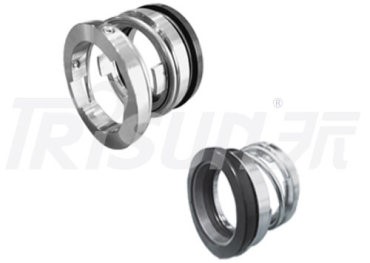What Is a Pump Seal? Advantages Across Industries
Apr 28, 2025
In industries where fluid handling is vital, ensuring leak-free operation is critical. Here, the pump seal plays a central role. A pump seal, also known as a mechanical seal, is a device that helps prevent fluid leakage in a pump system by sealing the rotating shaft against the stationary pump housing. Whether in oil and gas, food processing, pharmaceuticals, or water treatment, pump seals are essential to efficient, safe, and environmentally responsible operations.

Let's explore how pump seals work, their types, and their wide-ranging benefits across different industrial sectors.
Understanding Pump Seals: Why Are They Important?
Pump seals are designed to keep the fluid inside a pump housing while preventing contaminants from entering. As the pump shaft rotates rapidly, seals maintain a tight barrier despite constant movement and varying pressure levels.
There are several types of pump seals, including:
- Mechanical seals are for high-performance applications, offering long life and leak prevention.
- Lip seals are used in lower-pressure systems and are ideal for cost-conscious solutions.
- Gland packing is an older method still used in applications with a high tolerance for leakage.
Modern pump seal technology is evolving quickly. It combines material science, fluid dynamics, and mechanical engineering to meet the rigorous demands of today's industries.
Benefits of Pump Seals in Various Industries
- Oil and Gas Industry
Pumps in oil refineries and petrochemical plants operate under extreme temperatures and pressures. Any leakage can result in economic loss and serious safety hazards. In this industry, pump seals must be highly durable and resistant to corrosive fluids.
Advantages:
- Improved safety by preventing leakage of flammable substances
- Compliance with environmental regulations by eliminating fugitive emissions
- Enhanced pump performance and longer service intervals
- Water Treatment and Utilities
Pump seals help ensure a clean water supply and proper wastewater management in municipal water systems and sewage treatment plants. Seals in this industry must resist particulate abrasion and continuously handle large volumes.
Advantages:
- Reduced maintenance costs and fewer unplanned downtimes
- Prevention of contamination in potable water systems
- Longevity in pumps operating 24/7
- Food and Beverage Processing
Pumps in food production require hygienic, FDA-approved seals to prevent contamination. Seals in this sector must withstand cleaning chemicals and high sanitation standards.
Advantages:
- Hygienic processing due to leak-free seals
- Increased production uptime
- Compliance with industry safety and cleanliness standards
- Pharmaceutical Industry
Precision and purity are vital in pharmaceuticals. Pump seals must meet stringent cleanliness standards and be compatible with aggressive solvents and high-purity fluids.
Advantages:
- Prevention of cross-contamination
- Support for clean-in-place (CIP) and sterilization-in-place (SIP) processes
- Regulatory compliance with US FDA, EU GMP, and other standards
- Chemical Industry
In chemical processing, pump seals are exposed to acids, bases, solvents, and reactive compounds. The proper seal ensures safety and protects expensive equipment from damage.
Advantages:
- Resistance to chemical corrosion and thermal degradation
- Protection of pump internals and reduced downtime
- Safer working environment for plant operators
Choosing the Right Pump Seal
Selecting the appropriate pump seal depends on various factors:
- Fluid type: Is it abrasive, toxic, or corrosive?
- Temperature and pressure: What are the operating conditions?
- Speed and cycle: Is the system continuous or intermittent?
- Industry standards: Are there compliance or certification requirements?
Modern sealing solutions offer customization to match your pump design, fluid characteristics, and operational needs. Consulting with an experienced pump seal supplier ensures optimal performance and cost efficiency.
Innovations in Pump Seal Technology
Advancements in materials (e.g., silicon carbide, carbon graphite, and elastomers) and design (multi-spring, balanced seals, cartridge seals) make seals more robust and efficient.
New technologies include:
- Dry-running seals: Useful in applications where lubrication is difficult.
- Split seals: Allow seal replacement without dismantling the pump.
- Gas-lubricated seals: Ideal for high-speed compressors.
These innovations are not only improving reliability but also reducing lifecycle costs and environmental impacts.
Pump Seals and Sustainability
Sustainability is a key focus for modern industries. Properly selected and maintained pump seals contribute to greener operations by:
- Reducing energy consumption through better pump efficiency
- Eliminating leakage and emissions of hazardous fluids
- Extending the life of equipment and minimizing waste
As industries push toward carbon neutrality and resource optimization, the role of pump seals in achieving sustainability goals is becoming more critical.
Common Signs of Pump Seal Failure
Early detection of seal failure can prevent major issues. Watch out for:
- Visible fluid leakage
- Unusual noises or vibrations
- Drops in system pressure or flow rate
- Seal face damage during inspections
Routine monitoring and timely replacement can prevent breakdowns and avoid costly repairs.
Conclusion
The pump seal is a small but vital component that plays a significant role in the reliability and efficiency of pumping systems across industries. The proper pump seal helps organizations achieve performance, safety, and environmental goals, from safeguarding sensitive pharmaceutical processes to ensuring safe crude oil transfer.
By choosing quality pump seals and properly maintaining them, industries can significantly reduce downtime, increase operational life, and meet stringent regulatory standards.
Let's Seal the Deal!
Need help selecting or upgrading your pump seals?
Explore our full range of mechanical seals and components at TrisunLtd.
Recent Posts

October 26, 2016
The Most Successful Engineering Contractor

